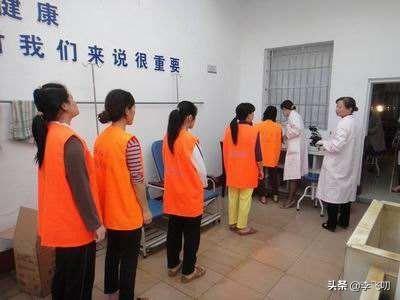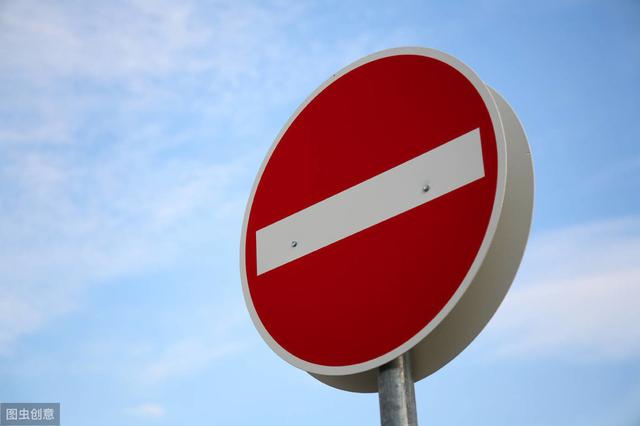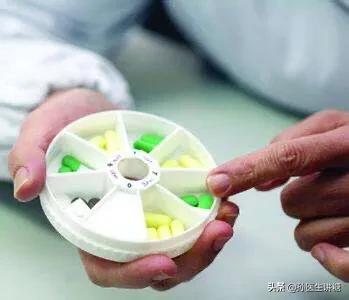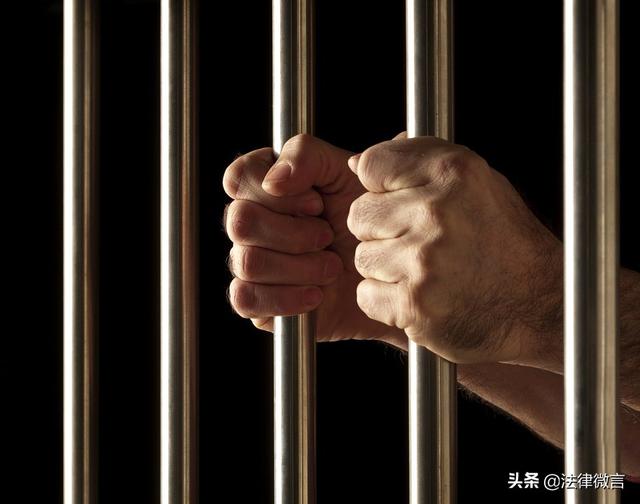What happens when a court detains an enforced person and the detainee has severe diabetes?
Suspects who are generally ill will be sent to public security hospitals for those with serious illnesses and to detention centers for those with less serious illnesses.
When a suspect enters a detention center, he or she is required to undergo a comprehensive medical examination. If he or she has a major illness, the detention center will not take him or her in and will send him or her directly to the public security hospital in his or her locality. Therefore, all suspects who are admitted to detention centers are basically healthy, and even if they are ill, their condition is relatively mild.
In addition, each detention center has a resident doctor who will take appropriate measures according to the different conditions of the suspects.
The general resident doctor will visit each prison cell at a fixed time each day. At this time, suspects who feel unwell can tell the doctor about their condition and health, and in the case of minor ailments such as colds, the doctor will issue the appropriate dosage of medicine directly according to the situation and supervise the suspect to take it on the spot.
When a suspect has a more severe case of inflammation and fever, etc., the doctor will hook the suspect up to water (an IV) to restore the suspect's health as quickly as possible.
As for chronic diseases such as diabetes mellitus, when a suspect is sent to a detention center, he or she will tell the police about his or her condition and then notify a doctor. As a general rule, when family members learn that a suspect is about to be sent to a detention center, they send insulin and other medicines to the reception desk of the detention center, where the officers check and screen the medicines and syringes and keep them in the center's infirmary.
The injection time is different for each suspect, usually before breakfast. At this time the resident doctor will take out the syringe, send it to the cell block window and hand it to the suspect, who will have the syringe taken away after the injection!
Nowadays, in detention centers, the management is very humane, even in the middle of the night, when you encounter a suspect with a sudden illness, you can always call the police and doctors through the staff on duty, so the family members do not have to worry about this!
Welcome to follow the support!
Pictures from the Internet, infringement of the joint deletion.
The detention center is not the court, the detention center is independent not door, the executor, during the detention period he does not pay, he is sick today, tomorrow there are medical and food money he does not take, the detention center will sue the court, the court will sue the execution of the time after this money all have executor to take, he is a old scoundrel, he is still afraid of being detained, I have a buddy is the old scoundrel was detained, he is that way, and then the executor to be detained in detention, the money are paid, he does not come out, relying on not go here have food and drink, want to be detained people, think you can, ask the judge his detention period costs if he does not get I have a buddy who was detained as a scoundrel, he did that, and then the executor paid all the money during the detention period, he did not come out and stayed here with food and drink, want to be detained by the executor of the people, think well you can, ask the judge if he detained the cost of the period of time if he does not take it is your court to take it or I will take it, the judge will tell you, and the judge will tell you.
The executor has severe diabetes to take insulin in the case of detention centers are not admitted, but if the crime of refusal to be sentenced to prison will be admitted to the cell
Judicial detention of persons suffering from serious illnesses requires careful consideration, and fines and detention, as well as fines only or detention only, may be applied to the executed person.
The reason why the executor for becoming an old rascal, because they are good at bad with bad, and they themselves know that there are measures that are useless to them, such as detention, old, sick, single parents with children, in short, there will be a lot of life and personal factors that lead to the detention can not be carried out successfully.
01
People with severe diabetes, who are not usually detained by the courts
As mentioned earlier, there are various disciplinary measures in execution, and detention is not a mandatory option. Therefore, when taking measures to restrict the personal freedom of the executed person, the choice is often made carefully, especially for the executed person who suffers from illness, if any physical problems occur as a result of detention, the court is ultimately liable.
At the same time, even if the court decides to detain a detainee suffering from a serious illness, the police of the detention center will not necessarily accept the detainee, and the detention center has conditions for acceptance of detention, "the detainee is not fit to be accepted for physical reasons, because the detention center does not have the conditions for treatment", that is, it refuses to accept the detainee. In this way, the court is forced to change other measures.
Therefore, at the beginning of the work, the enforcement judge will take into account all the circumstances, and measures that are obviously not feasible will not be applied, or it is also asking for trouble.
02
While an executed person with a serious illness cannot be detained, there are other measures that can restrict his behavior
It is sympathetic to be ill, but it is just as sympathetic to be unable to get the money for which the judgment of the applicant for execution is in force. Therefore, for executors who cannot be detained for special reasons, other means of combat can be applied.
For example, they can be fined and penalized and their spending behavior can be restricted. Anyone who is sick is not an excuse to violate the legitimate rights and interests of others, the fulfillment of the fulfillment, if there is really no money to pay back, then it can still be properly understood. To have money, or to money for medical treatment as a reason for refusing to fulfill the judgment, and is not worth sympathy, who knows whether the applicant for execution needs money to see a doctor?
Usually, the court will investigate the situation and use suitable means to induce him to fulfill the obligations determined by the judgment.
concluding remarks
People live a life, integrity can not be lost, lost integrity, may be through a lifetime of efforts can never be picked up. And for their own sick executors, although their own situation is special, but think about it, the other side and easy.
Therefore, no one has an easy time doing what he or she should do and fulfilling the obligations he or she should fulfill. Living in the present moment, everyone should do his or her best.
Owing bank loans to pay a few years (mortgage), has no repayment ability, after the Court Executive Board in the process of implementation of the court very very cooperate with the court to implement (very active with the court to auction the collateral house, but the auction auction abortive) the court can be included in the list of bad faith lenders?
A friend of mine suffers from severe diabetes, but as usual, incarceration is not negotiable.
Both answered incorrectly, even with diabetes detention is still detention as usual, just insulin cups given to you at the end of each meal so you can inject them in plain sight before taking them away. Still the same detention.
There are diabetic patients who have committed or are suspected of committing crimes. Some of my patients have been in and out of detention centers many times, and sometimes when they meet the police in the outpatient clinic to take them to the hospital for checkups, they see me and have complicated eyes. Later, when they arrive at the hospital, they will be busy explaining that the

"Dr. Sun, I just drank too much that time and didn't control myself!"
Many of the people in detention centers are violators of public order regulations, drinking and fighting. This part of the population has a poor lifestyle, living a daily life of drinking and eating meat, most of them are obese, and almost all of them have metabolic diseases such as alcoholic fatty liver, hyperlipidemia, hyperglycemia, hypertension, and so on.

Every time to these people bitter words, on the surface promised to be very good, but in the twinkling of an eye can be seen in the restaurant, stalls, they yell and drink, and when asked about it, they said, "I want to earn money ah! How can I do without socializing?"
There's really no way around it!
And they are then very prone to fights over financial disputes, friends' righteousness, and alcohol uptake, and get sent to the detention center. In fact, I think that they go in for a period of time not only to reform their minds, but also to be healthy for their bodies, and a regular and light diet is good for their blood sugar, blood lipids, and so on.
As for patients with severe diabetes, if insulin treatment, there are doctors in the detention center. I still remember that more than 10 years ago, the police in the detention center once showed me an insulin pen and asked mysteriously, "Is it for injecting drugs?

After our publicity, both police officers and patients have gained an understanding of this disease. I think it is possible to apply for medical parole for diabetes mellitus if it is really heavy and combined with serious cardiovascular and cerebrovascular diseases, and those with diabetes mellitus combined with chronic complications can be kept in a stable condition by adhering to the medication.
Although going into a detention center can have no effect on blood sugar control, and may be somewhat beneficial. However, it is still hoped that diabetic friends can comply with the law, after all, there is still a certain impact on normal life.
Follow Dr. Sun on Sugar and keep learning more about quality health.
Apply for medical parole ah, if the condition is very serious, I think the detention center do not dare to accept, people really in the event of an accident in the detention center, the detention center will be a big problem
Legal Microtalk answers you clearly:
The court will take a case-by-case approach, conduct a professional medical examination on admission, assess the impact of the condition on the detainee, and then make a decision.
According to the relevant legal provisions, if the detainee's condition is serious before or during detention, a notice of cessation of detention shall be issued to stop the detention. Generally, the seriousness of the condition mainly refers to the following situations:
One of them is suffering from mental illness (there must be a certificate from a specialized psychiatric institution);
Secondly, if you are suffering from infectious diseases that require isolation and treatment, if you are simply suffering from infectious diseases such as Hepatitis B and AIDS that do not require isolation and treatment, there are separate isolation places in the detention center, which can also be enforced;
Third, the condition is so serious that it may jeopardize the life safety, the detention center is actually very afraid of the death of patients in the detention center, because it is not clear, public opinion pressure is also very big, so in the entry of the physical examination, are detained on the detainee to carry out a rigorous physical examination, if the check out the detainee, is not suitable for the detention, or the detention is very easy to produce the risk of life safety, will not agree to enter the house;

(d) Fourthly, detention is not recommended for those who cannot take care of themselves. This is well understood, as detention centers are not welfare institutions such as hospitals and nursing homes, and people who cannot take care of themselves still have to find specialized care;
(e) Fifth, if the detainee has a medical condition that requires treatment and cannot be cured in the short term. This is a complex situation and should be treated differently. If the detainee really needs to be hospitalized and cannot be cured in the short term, the execution can only be temporarily suspended.
I am Legal Microtalk, creating articles in the legal field on an ongoing basis! Follow me for answers to questions and pro bono legal advice, please!
This question and answer are from the site users, does not represent the position of the site, such as infringement, please contact the administrator to delete.